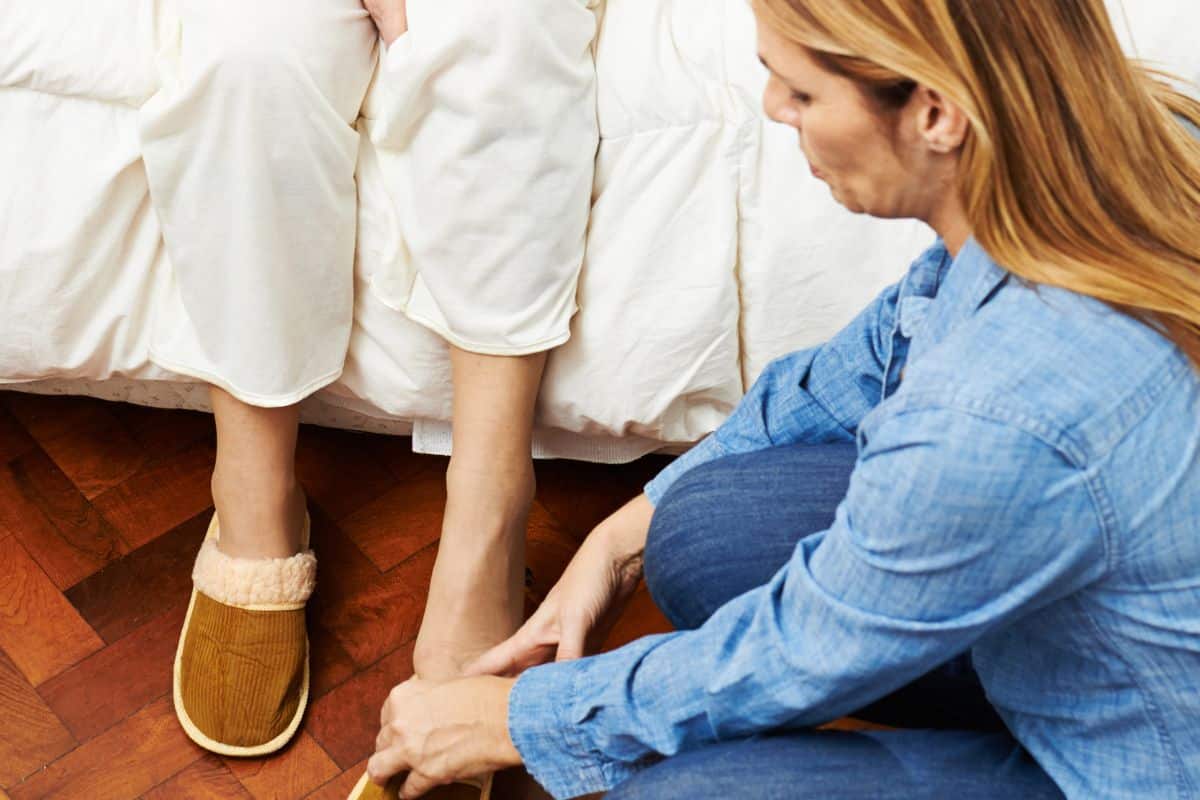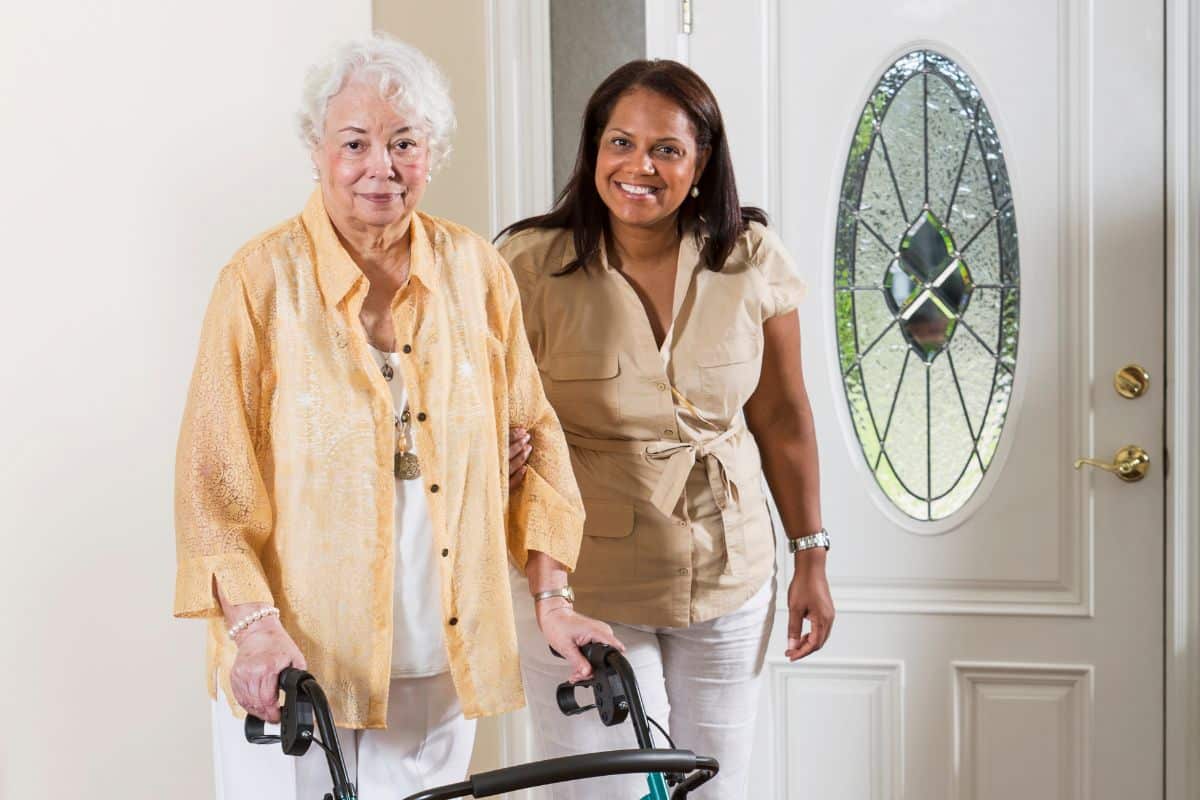It can be easy to underestimate the challenges of caregiving for a senior parent or loved one. So often, one can think that this merely involves assistance with mealtime and running the occasional errand on behalf of your senior, when the reality looks a lot different. The following blog aims to shed some light on the more practical challenges family caregivers encounter, so you can plan accordingly and be prepared for what’s in store.
It’s important to remember that every situation is unique and that if you act as the caregiver, some common challenges you may encounter include stress, adjusting to a new routine, dealing with difficult family members, and administrative challenges, to name a few. Therefore, this section will delve further into various common caregiving challenges and provide tips for dealing with them.
Here are five common challenges of caregiving for a senior — and what to do about them:
1. Lack of Privacy
Having boundaries in the form of physical privacy is necessary, irrespective of whether you are a caregiver or not. Privacy can be especially challenging if you are operating in a smaller living space or when your senior loved one has dementia.
Tips for protecting privacy:
- Make the necessary home improvements to allow your senior to have his or her own space for sleeping and living.
- Establishing household rules everyone agrees on for the use of the TV, kitchen, and other possible points of conflict. Keep in mind that in the case of dementia, adhering to rules can become difficult as the disease progresses.
- Make it a priority to maintain one-on-one time with other family members and friends.
- Don’t get into the habit of putting vacations, school events, or other previous family activities on indefinite hold.
- Use locks and diplomatic responses where necessary and be sure to explain this to other family members so everyone is on the same page. Especially in the case of advanced dementia, it may be necessary to physically prohibit your senior from entering your private space at certain times.

2. Lack of Quality Sleep
Seniors are known for topsy-turvy sleep-wake cycles. This naturally disrupts the sleep of the caregiver, who’s already burning the candle at both ends to manage everyone’s needs. It’s no secret that this lack of sleep then impacts the caregiver’s mental and physical health. Quality sleep will have a positive effect on the caregiver, as well as the senior loved one. Start with the below steps toward a better night’s sleep for both of you.
- Make sure your loved one’s basic sleep hygiene is in order. No stimulating beverages or activity late in the day. A quiet, dark room. Proper comfortable clothing for sleep. No TV or electronics are used in the bedroom at night. Use a proper, comfortable bed, not a lounge chair.
- Make sure your own sleep habits adhere to these same guidelines as mentioned above.
- Run a medication review with your senior’s physician to make sure no meds are interfering with sleep.
- If you’ve done everything you can to create a healthy sleep environment, discuss sleep issues with your loved one’s doctor. A mixed-up sleep-wake cycle is a feature of dementia, but it can often be remedied by a good household routine and by addressing the person’s fears to reduce anxiety.
3. Feelings of Loneliness
It’s easy for a caregiver to fall into lone-soldier mode without realizing it. This is more common in male caregivers who feel less certain about how to provide care and feel more frustrated about lifestyle restrictions.
Feeling responsible for a loved one, they assume the full burden, marching forward without regard to their own emotional needs. In reality, it takes a whole army to manage caregiving effectively.
Tips to fight feelings of loneliness:
- Let go of the old idea that asking for help is a sign of weakness. It’s NOT.
- Discuss your own needs with your physician, therapist, or social worker.
- Join a caregiver support group. To find a group, do some research online. There are plenty of helpful forums out there.
- See a counselor if you’re experiencing signs of depression.
- Arrange monthly or, ideally, weekly respite breaks. Go to lunch with a friend.
- Invest in researching local non-profit senior programs, such as Glory Days. They specialize in educational activity days for seniors with the purpose of giving caregivers a well-deserved break.

4. Uncertainty and Unpredictability
Often, caregivers are navigating their day-to-day by simply keeping afloat, which is not a sustainable way of being. Unfortunately, it’s an exhausting way to live and fuels the stressful feeling that your life is at the mercy of an unpredictable force in your home.
Tips to combat uncertainty and unpredictability:
- Create contingency plans where possible. Once a week, devote an hour to focusing on “if this, then this” scenarios.
- Make lists of places and people you can contact to solve potential problems common to your situation. This is where reaching out to one of our Certified Placement Experts can really go a long way in helping.
- Learn as much as you can about your loved one’s condition(s) and how they typically progress.
- If your loved one has dementia, understand the various stages, where your loved one likely is and what to do next.
- Consider a support group. These help caregivers visualize future challenges and how to plan for them by way of learning from others’ experiences.

5. Overwhelming Care Tasks
Perhaps the most trying challenges of caregiving for a senior are practical matters that go beyond the caregiver’s ability to manage. Chief among these: are incontinence, heavy lifting, and wandering behaviors in someone with dementia.
Tips to combat care tasks:
- Be sure there’s been a thorough physical exam to see if a problem, such as incontinence, is fixable.
- For behavioral issues such as wandering, learn the basic ways to address the problem (for example floor alarms, locks, reducing anxiety).
- Explore whether bringing in more help, such as personal care assistants or nurse aides, can help.
- Make sure you’re not trying to solve the problem alone.
- If you’ve explored every option and things still aren’t working, ask yourself if you’re resisting out-of-home placement because of guilt.


